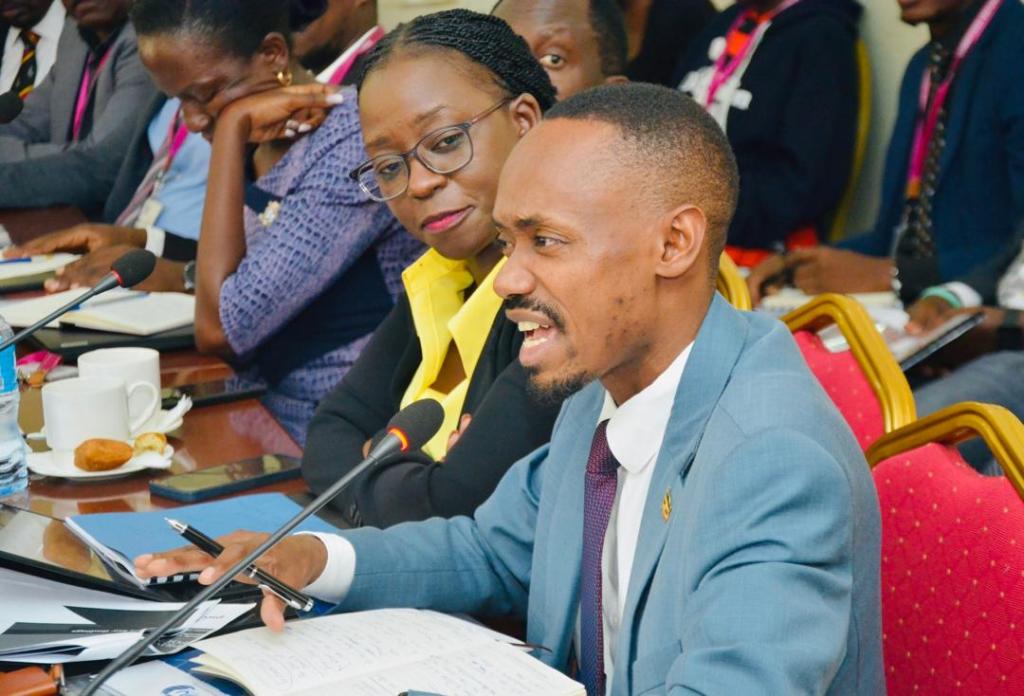Officials from the Private Sector Foundation of Uganda (PSFU) and Uganda Manufacturers Association have asked the Government of Uganda to harmonise the costs of Digital Tracking Solutions, also known as Digital Tax Stamps (DTS) with its East African Community counterparts to ensure fair competition.
They said this during an interface with MPs on the Parliamentary Committee on Finance on 30th October 2024.
According to Dr. Julius Byaruhanga, the Director of Policy and Business Development at PSFU on average, Uganda’s stamp prices are 38% higher than those in similar regions such as Kenya and Tanzania where prices are 40% and 35% higher respectively, yet they have a similar supplier SICPA Uganda.
“Members of the manufacturing sector have consistently expressed their support for the Government efforts in implementing DTS. However, it is evident that the current fees associated with DTS are excessively high, leading to elevated operational costs for the sector,” he stated.

He said high DTS charges are likely to make the final price of goods and services expensive, leading to an increase in illicit trade because Uganda is a price-sensitive market.
“Our market is highly price sensitive. If you visit any small local bar, you will find that 95% of the alcoholic drinks can’t be traced; they aren’t tax compliance and don’t have labels of alcoholic content.”
Allan Ssenyondwa, the Director of Advocacy at the Uganda Manufacturers Association (UMA) said that having different DTS rates in the EAC common market has created competitiveness challenges.
“Can we try and either harmonise across the region or reduce the cost so that the entire region has similar prices? It’s better that way because we are in one common market.”
On what can be done to bring down the cost of DTS, Ssenyondwa said the Government should bring on board companies that offer similar solutions at cheaper prices.
“Can we revise the way these solutions work so that it helps in reducing the challenge of illicit trade and manufacturing? How can we increase industries to be more productive; these issues of DTS albeit they are good, you should make them cheap so that the rest of the country can invest in the manufacturing sector. “
Juliet Nagginda, Senior Manager at Tax Services at PwC Uganda who presented a report on the impact of DTS on the manufacturing sector said one of the key challenges that the manufacturers have highlighted that; “For every UGX 100 Exercise Duty they pay, they incur about UGX 16 to comply and this is the cost that they are bearing because many of them can’t pass the price to the consumers because of the sensitivity of the goods.”
According to the report, over 30 manufacturers have ceased operations due to various reasons, most of these manufacturers had initiated their businesses before the introduction of DTS but had to close during its implementation.
In Uganda, the use of DTS was rolled out in the Financial Year 2019/20 following the launch of the Domestic Revenue Mobilization Strategy by the Finance Ministry. DTS was also aimed at addressing revenue leakages. The Chairman of the Parliament Finance Committee Amos Kankunda while responding to officials from PSFU and UMA, said that the committee will look at the issues raised and discuss them with the Government to ensure more productivity of the manufacturers.
Related
Source link
 The Impalaa Reports Impalaa is your biggest news source in Uganda and the East African region, bringing breaking news, daily updates, and the latest stories from Uganda.
The Impalaa Reports Impalaa is your biggest news source in Uganda and the East African region, bringing breaking news, daily updates, and the latest stories from Uganda.


